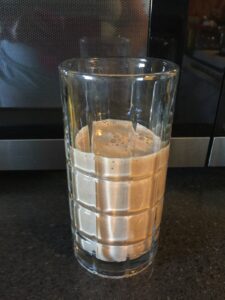 What are pre-workouts and are the worth the extra cost? That’s a question that many clients at Liv Fitness in Dublin, CA, have asked and the answer is simple. Preworkouts are commercially produced products that make getting the extra calories and energies you need more convenient. They’re a combination of protein and carbs to be consumed before working out that provide both the energy for your muscle tissue and a feeling of fullness so you don’t feel ravenous later.
What are pre-workouts and are the worth the extra cost? That’s a question that many clients at Liv Fitness in Dublin, CA, have asked and the answer is simple. Preworkouts are commercially produced products that make getting the extra calories and energies you need more convenient. They’re a combination of protein and carbs to be consumed before working out that provide both the energy for your muscle tissue and a feeling of fullness so you don’t feel ravenous later.
The combination of protein and carbs are important for energy and building muscle tissue.
You could get the same benefit from eating a peanut butter and jelly sandwich or consuming cottage cheese and fruit before starting your exercise regimen. Using a preworkout is all about convenience. However, you also need to take precautions and read the label. While they’re geared for macronutrients, some contain chemicals, and some contain sugar. Others include vitamins, such as a B complex, while still others may have caffeine, both of which can enhance performance and boost metabolism.
Reading the labels are important for other reasons.
Some preworkouts contain lactose. If you’re lactose intolerant, that can make a difference in your comfort during a workout. Nobody lifts their best when they’re holding in gas or diarrhea. People with IBS need to avoid supplements with carnitine, inulin, creatine or artificial sweeteners. Artificial sweeteners can also bloat others and cause explosive diarrhea. That’s not a good look in the gym.
Preworkouts aren’t regulated by the FDA and some are far better than others are.
The FDA doesn’t regulate preworkouts, so no matter what the label says, it might not be true. Third party groups organizations, like NSF or Informed-Choice certify the quality and purity of supplements. Look for preworkouts that have their certification on the label. Some preworkouts contain super foods, such as beets with high nitric oxide levels. Nitric oxide dilates the blood vessels to increase blood flow to every part of the body. It can increase your endurance, while reducing stress on the heart.
- If you have high blood pressure, tachycardia or digestive issues, avoid preworkouts with creatine or caffeine. Both can cause blood pressure and heart rate to increase, while increasing digestive upset.
- If you don’t have IBS or high blood pressure, creatine and caffeine can boost the body’s ability to build muscle tissue and build strength, while improving your performance in the gym. Make sure you drink extra water.
- Eating a healthy snack an hour to three hours before a workout and drinking a cup of coffee can get the same results most preworkouts provide. You’ll save money and have hunger more satisfied.
- A study in the International Journal of Exercise Science showed preworkouts only accounted for an increase of four to eight percent of strength. Supplements with caffeine gave the biggest boost in performance. It all gets back to coffee and a snack.
For more information, contact us today at LIV Fitness
